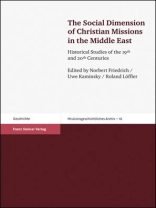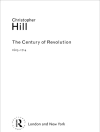Christian missions in the Middle East were and still are a highly sensitive topic. For a number of academics, they have destroyed indigenous cultures and are nothing else than the religious wing of imperialism. A new development in historiography gives a different interpretation: Missions seem to have strongly contributed to the development of social work, healthcare, education, and science in certain regions of the world – sometimes even implementing basic social infrastructure that has been neglected by local rulers for decades or centuries. In particular, the missions in the Middle East have exhibited a strong ‘social dimension’. Thus, one could even speak of a specific ‘trademark’, for conversions hardly took place in the ‘house of Islam’, and also among Jews during the 19th and 20th century.
This volumne brings together some of the essential papers of a conference dealing with questions of cultural, religious and social history in this field of research. It contributes to the historiography of Christian missions, welfare organisations as well as of Christian Churches in the Middle East. The book challenges the predominantly eurocentric depiction of the history of Christianity by juxtaposing a transnational reading of Christian activism in the Orient.
A propos de l’auteur
Der Historiker Uwe Kaminsky ist aktuell wissenschaftlicher Mitarbeiter an der Ruhr-Universität Bochum. Er ist mit Arbeiten zur kirchlichen Zeitgeschichte wie der Sozial- und Diakoniegeschichte hervorgetreten.












